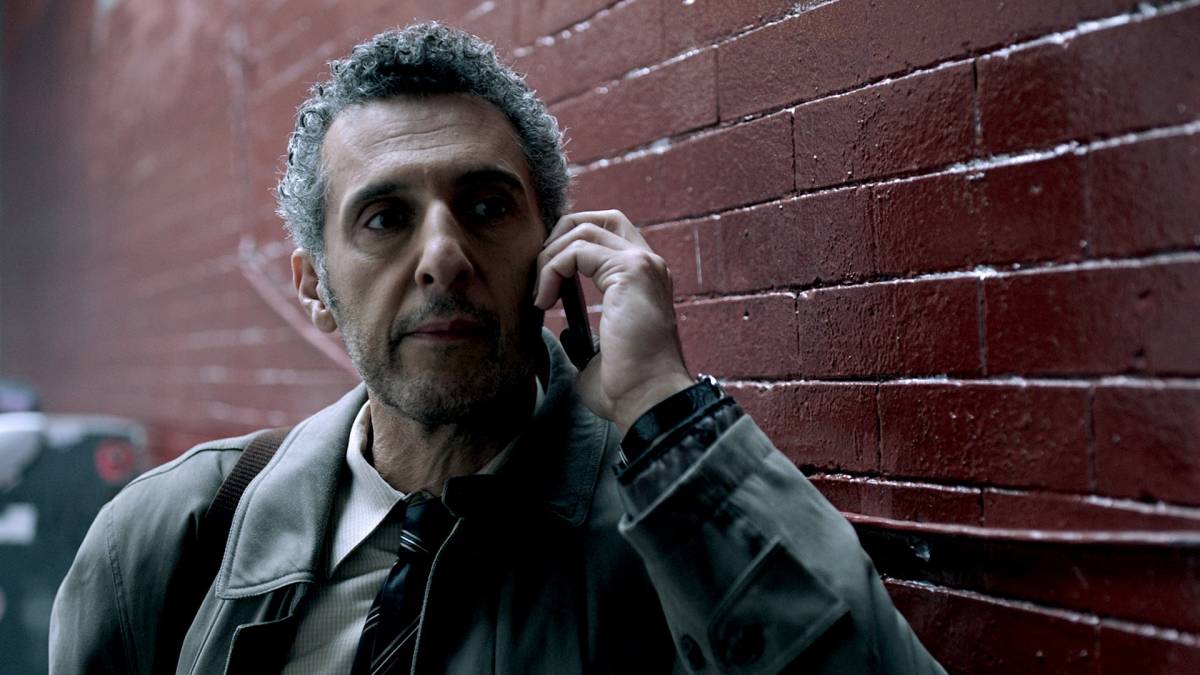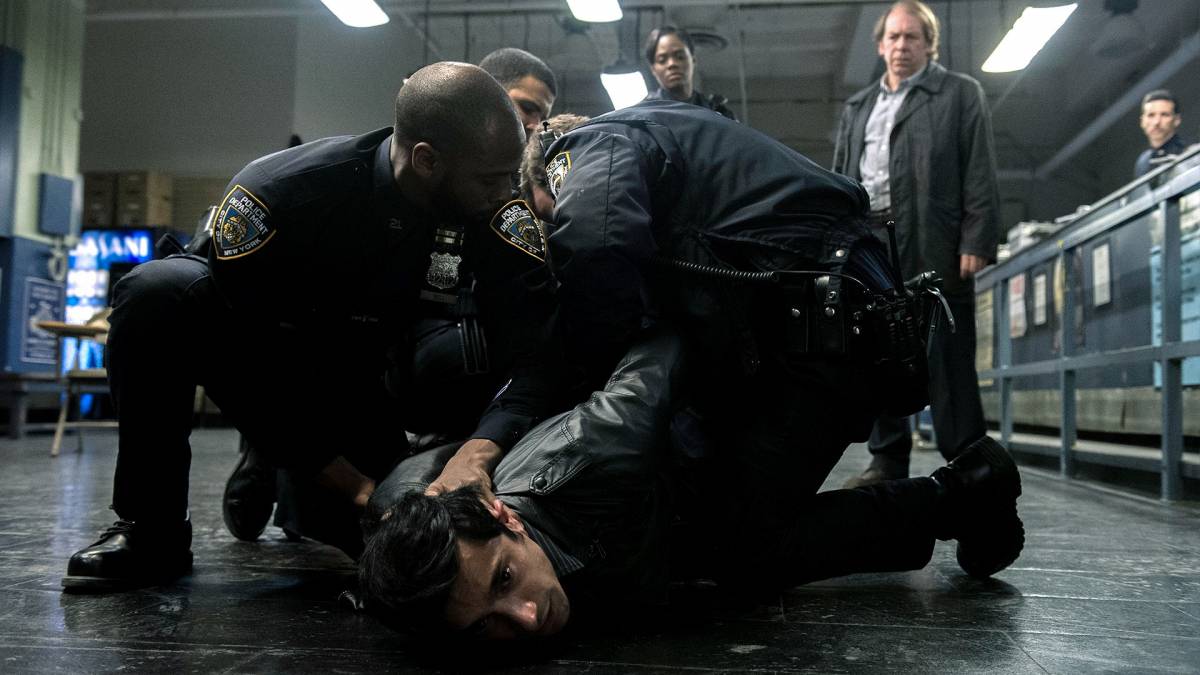Our cultural landscape has been awash with excellent true crime documentaries recently such as Serial and Making a Murderer. Narrative journalism is now being used to immense and gripping effect to illustrate the inner workings of the criminal justice system and the dark iniquities that exist just below the pristine surface of clean courtrooms. But has this filtered back into the way our crime fiction works? Crime fiction can often be neat, tidy and simple, depicting a process where morally infallible cops or civic-minded lawyers dispense an almost divine brand of justice over the course of a half an hour and carefully set our minds at ease that our criminal justice system is not only functional but indeed the perfect bedrock on which our entire civil society is founded.
Well, HBO’s The Night Of seems to have learned some lessons from the zeitgeist of injustice and legal malpractice. The series centres on Nasir Khan, a squeaky clean Pakistani-American college student who, after a drunken night with a beautiful stranger, wakes up charged with her brutal murder. Nas hobbles doe-eyed and terrified through the grim, grey gauntlet of the American criminal justice system unable to confront an overwhelming amount of evidence against him and struggling to work out what strategic alliance of cops, lawyers, and fellow criminals will help him survive the justice system and perhaps even win his freedom.
The first notable thing about The Night Of, which it inherits from its British predecessor Criminal Justice, is the way in which it deals holistically with an individual’s journey through the criminal justice system. The standard procedure in crime fiction, whether police procedural or courtroom drama, is to merely slice off a portion of the criminal justice system and stage the whole drama there.
In most crime fiction the narrative is neat: the curtain falls when you cuff the criminal or you gain a sufficiently meaty sentence. This makes it easier to tell these very simple stories about the criminal justice system as you divorce events from all context or surrounding circumstance and you can set up the apparatus of law enforcement (police officers, lawyers etc.) as noble superheroes descending onto the scene from on high with no prior agenda except a quest for justice. As ‘The Night Of’ tracks Nas’ fight from drunken, drug-fueled mistake to sentencing hearing to prison cell, it gives us all of the necessary contexts to understand Nas’ plight and not just view his case as an exciting, feature length locked room mystery but as an individual tragedy happening to a human being.

Of course, the element of the Night Of that is most stunning and which aids most in constructing this holistic narrative of criminal justice is the show’s camera work. One of the first little quirks you will notice in the series’ opening episode occurs as Nas is making his journey downtown to go to a friend’s party and meets the mysterious girl whose murder he will later become entangled in. The camera takes care to hover over a number of times in which there is a clear eyewitness or visual record of Nas whereabouts; a toll booth camera, a store’s security footage, an early encounter with a police officer. All of this illustrates the effect of the criminal justice system where minor prior memories associated with the crime all of a sudden gain an almost omnipotent importance for their potential to provide alibis. The night of the crime, from which the show derives its name, takes on a kind of hyper-reality as Nas’ own feverish mind and the viewer’s, already alert at the opening titles that something is going to go wrong, carefully curate the images and details of the night in order to find some object or event of significance which might provide a break in the case.
The camera also works to cast aspersions on the characters surrounding Nas as he tries desperately to work out who, if anyone, is really concerned with his safety and the possibility of a fair trial. An early scene fades between one shot of detective Dennis Box attempting to reason Nas’ parents into a guilty plea and attorney John Stone lecturing Nas’ on just how useless “the truth” is in the case of a criminal trial. Although John Turturro’s John Stone is presented as the more morally righteous of the two certain parallels are drawn in terms of their mutual view of Nas less as a terrified college kid and more as a ‘big win’ for their respective careers. Turturro’s character is even more interesting. The camera often focuses on his horrific skin condition or a kind of comedic effect as he prods at his itchy flaking skin with pencils and chopsticks.
However, it also presents a view of the lawyer refreshingly distinct from the clean cut, suit-and-tie Law and Order civil servant. Turturro’s character is tortured, unsightly and broken; but he has some kind of morality let beneath his itching skin. Due to the wide-lensed approach of the narrative we don’t just see him as an incompetent bum in the courtroom with a heart of gold, but we see how his home life and his passion for racial politics may have influenced his sense of moral justice as much as any of the detached civic mindedness that exudes from the legal superstars of other courtroom dramas. This a point that becomes even more relevant as Nas is held on Rikers’ Island awaiting trial and the camera glides among a sea of people of colour, demonstrating wordlessly the racial injustice of the American political system.
The Night Of is a show unafraid to use its slick visual style and clever writing to tell a story that may not be morally comforting or great popcorn-viewing, but it is raw and truthful in a way that police procedurals never can be. The lessons of the true crime, criminal injustice documentary have come home to roost in fiction and the results are shocking and spectacular.
Some of the coverage you find on Cultured Vultures contains affiliate links, which provide us with small commissions based on purchases made from visiting our site. We cover gaming news, movie reviews, wrestling and much more.



